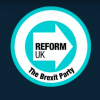Plaid Cymru likely to take second place, three seats ahead of the Conservatives

Image: Plaid Cymru
With just one full week’s worth of campaigning left until voters go to the polls, new polling out today suggests Labour in Wales has hit a six-year low.
According to the latest Welsh Political Barometer the Welsh Assembly will look as follows:
Labour: 28 seats (26 constituency seats + 2 list seats)
Plaid Cymru: 13 seats (7 constituency seats + 6 list seats)
Conservatives: 10 seats (5 constituency seats + 5 list seats)
UKIP: 7 seats (7 list seats)
Liberal Democrats: 2 seats (2 constituency seats)
In the constituency section of the vote the breakdown is (with change from last poll in brackets):
Labour: 33 per cent (-2)
Plaid Cymru: 21 per cent (no change)
Conservatives: 19 per cent (no change)
UKIP: 15 per cent (-2)
Liberal Democrats: 8 per cent (+2)
Others: 3 per cent (no change)
If such results were replicated across the board, the figures project three constituency seats changing hands. The Liberal Democrats would take Cardiff Central from Labour, whilst Plaid Cymru would gain Llanelli from Labour, and Carmarthen West & South Pembrokeshire from the Conservatives.
For the regional list section of the vote, the barometer has the parties on the following figures:
Labour: 29 per cent (-2)
Plaid Cymru: 22 per cent (+2)
Conservatives: 19 per cent (-1)
UKIP: 15 per cent (-1)
Liberal Democrats: 8 per cent (+3)
Greens: 4 per cent (no change)
Others: 4 per cent (+1)
In his analysis, Roger Scully. Professor of Political Science in the Wales Governance Centre at Cardiff University has noted that Labour’s share of the vote on the constituency section of the ballot is some way below the 45 per cent it secured in a similar YouGov poll at about the same time before the 2011 elections.
Scully continues:
“So Labour are now twelve percentage points lower, on both ballots, than they were at this stage in the electoral cycle before the last Assembly election. Were Labour’s election performance this year to fall some way below their poll rating – which it has normally done in Wales in recent years – then Labour could be under threat of achieving their worst ever vote share in a National Assembly election. And yet the divided opposition leaves Labour well in the lead.”
Commenting on the encouraging forecast for Plaid Cymru, he said:
“Plaid Cymru must be encouraged that this poll now has them in a clear second place on both ballots, and projected to finish three seats ahead of the Conservatives. Plaid would need to make further progress, or achieve very strong local swings in particular constituencies, to make substantially greater seat gains.
Nonetheless, given that they have run behind the Conservatives on both Assembly ballots for most of the last five years, recent trends are at least moderately encouraging for them.
The findings are much more concerning for the Conservatives; the optimistic talk at the party’s March Welsh conference of making significant seat gains now appears significantly less likely to be realised.”
The poll also asked whether different political leaders were doing well or badly. Plaid Cymru leader Leanne Wood has a striking approval rating of 16 per cent, compared to four per cent for Labour’s Carwyn Jones, -15 per cent for Jeremy Corbyn and -37 per cent for David Cameron.
Ed Jacobs is a contributing editor at Left Foot Forward
Left Foot Forward doesn't have the backing of big business or billionaires. We rely on the kind and generous support of ordinary people like you.
You can support hard-hitting journalism that holds the right to account, provides a forum for debate among progressives, and covers the stories the rest of the media ignore. Donate today.










2 Responses to “Welsh Labour at six-year polling low”
Jimmy Glesga
Leanne Wood is an opportunist who knows Wales is totally dependent on England and Ruk. England is the only viable economy at present. Do Wales and Scotland actually think England has a duty towards them if they become independent. Do Wales and Scotland think they can compete with England economically and England would facilitate this!
Martyn Wood-Bevan
I think that Labour should do a deal with Plaid Cymru which would ensure a left of centre government in Wales for the next 5 years, providing that they are both open to this. Labour could benefit from some fresh input and Plaid could benefit from some further experience of power at the top table. Keep Tories and UKIP out!